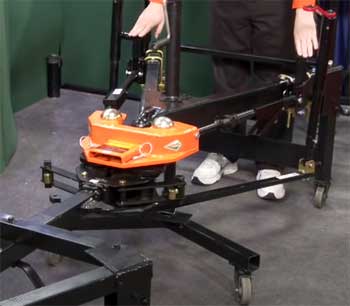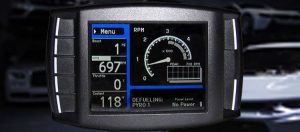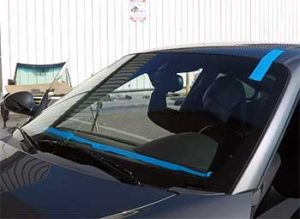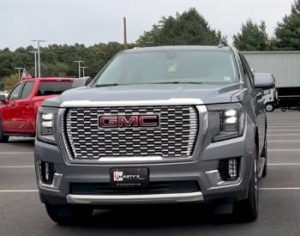Towing a trailer can be a daunting task, especially when you’re using a traditional hitch. The Hensley hitch has been marketed as the ultimate solution to your towing problems, but is it really as perfect as it seems?
In this article, we’ll dive deep into the problems with Hensley hitch, and give you an honest, unbiased review.
The Promise of a Hensley Hitch

Before we delve into the potential issues, let’s take a look at what a Hensley hitch is supposed to do. This hitch was designed to eliminate trailer sway and improve overall towing stability.
Its unique design uses a linkage system to project the pivot point of the trailer forward, effectively making the tow vehicle and trailer act as one long, rigid unit.
This means that the Hensley hitch is supposed to give you a smoother, more controlled towing experience.
Also Read: Problems With e2 Hitch.
The Problems With Hensley Hitch
Now that we have a clear understanding of what a Hensley hitch is supposed to do, let’s take a closer look at some of the issues that users have experienced.
- High Cost
One of the most common complaints about the Hensley hitch is its price tag. This hitch is considerably more expensive than other hitches on the market.
Some might argue that the benefits outweigh the cost, but many users find it difficult to justify the hefty price when there are other, more affordable options available.
- Complexity
Another problem with the Hensley hitch is its complexity. The unique design requires a more involved installation process than your average hitch.
While some users might not mind the extra effort, others might find it frustrating and time-consuming.
- Difficulty in Hooking Up

Some users have reported difficulties in hooking up their trailers to the Hensley hitch.
The process can be more challenging than with a conventional hitch, especially when trying to align the tow vehicle and trailer.
This can be a major inconvenience, especially for those who need to hook up their trailers frequently.
- Maintenance
The Hensley hitch has a number of moving parts that require regular maintenance. This can be a hassle for those who prefer a more low-maintenance solution.
In addition, the complexity of the design may make it difficult for users to perform maintenance tasks themselves, which could potentially lead to costly professional servicing.
Frequently Asked Questions (FAQ)
Now that we’ve discussed some of the potential problems with Hensley hitch, let’s take a look at some frequently asked questions about this towing solution.
A Hensley hitch does not specifically reduce tongue weight. However, its design can help to distribute the load more evenly between the tow vehicle and the trailer, which could potentially lead to a reduction in tongue weight. It’s important to note that proper weight distribution is still necessary, regardless of the hitch being used.
Yes, you can back up with a Hensley hitch. However, some users have reported that it can be more challenging than with a conventional hitch. This is because the unique design of the Hensley hitch can make it difficult to maneuver the trailer while backing up. With practice, though, many users find that they can learn to back up with a Hensley hitch effectively.
Hensley hitches do work as they are designed to eliminate trailer sway and improve overall towing stability. However, as we’ve discussed in this article, there are some potential issues that users have experienced with this hitch. As with any product, individual experiences may vary.
The primary benefit of a Hens ley hitch is its ability to eliminate trailer sway and enhance overall towing stability. By projecting the pivot point of the trailer forward, the Hensley hitch allows the tow vehicle and trailer to act as one long, rigid unit. This can result in a smoother, more controlled towing experience. Additionally, some users may find that the Hensley hitch provides better weight distribution between the tow vehicle and the trailer, which can lead to improved handling and braking.
The Hensley hitch is not a weight distribution hitch in the traditional sense. While it does help to distribute the load more evenly between the tow vehicle and the trailer, its primary function is to eliminate trailer sway and improve towing stability. It is important to note that proper weight distribution is still essential, regardless of the hitch being used.
Also Read: Should You Get Cargo Mate Trailer?
The Verdict
In conclusion, while the Hensley hitch can offer some notable benefits when it comes to towing stability and sway reduction, there are also some potential problems that users should be aware of.
The high cost, complexity, difficulty in hooking up, and maintenance requirements might be deal breakers for some individuals.
As with any product, it’s essential to weigh the pros and cons before making a decision. If you’re considering a Hensley hitch, it’s a good idea to do your research, read user reviews, and even test it out for yourself if possible. That way, you can make an informed decision about whether the Hensley hitch is the right solution for your towing needs.
Remember, no hitch is perfect, and what works for one person may not work for another. By taking the time to research and understand the problems with Hensley hitch, as well as its benefits, you can make the best decision for your specific towing situation.
Happy towing!



